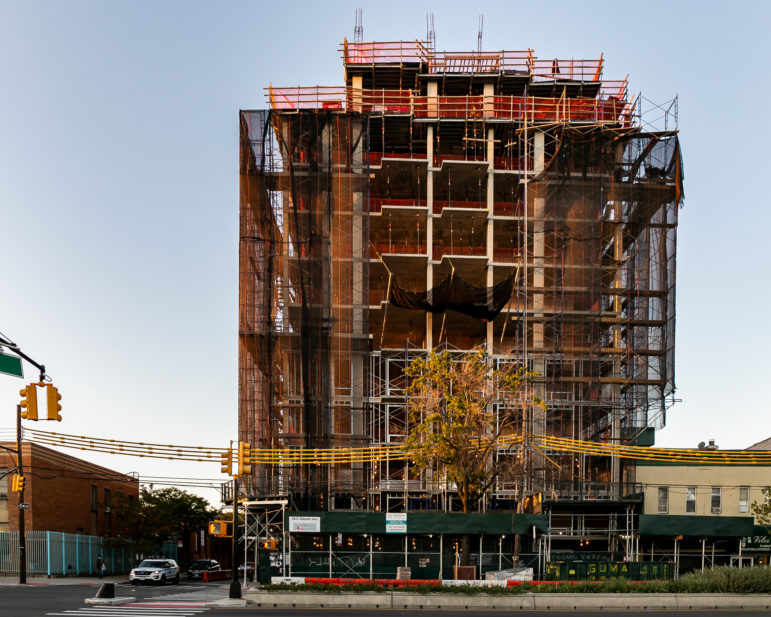“With rents on the rise and housing in short supply, this is one of the nation’s most effective weapons in the fight against a crisis that remains stubbornly severe.”

Adi Talwar
Construction underway along Atlantic Ave., Brooklyn.Our country is long overdue for meaningful federal action to address the affordable housing crisis, which is hitting New York hard.
Though Congress can’t agree on much, our congressional leaders in New York have an opportunity to advance bipartisan legislation that would have an outsized impact for our city and state. The Affordable Housing Credit Improvement Act of 2023, which currently has 200 bipartisan co-sponsors in the U.S. House and 30 in the Senate, would strengthen the Low-Income Housing Tax Credit (Housing Credit) at a time when the need is more urgent than ever.
With rents on the rise and housing in short supply, this is one of the nation’s most effective weapons in the fight against a crisis that remains stubbornly severe.
Fannie Mae estimates a nationwide shortage of at least 3.8 million homes, and Gov. Kathy Hochul identified a shortage of 800,000 homes in New York. Meanwhile, rents keep going up as supply remains low. A Pew study found that in 2022, the U.S. median rent-to-income ratio reached 30 percent for the first time. In New York, Pew found that housing construction in New York City has lagged far behind its peer cities, with the housing stock increasing just 4 percent since 2010–not nearly enough to keep up with a 22 percent increase in jobs.
Unleashing the full potential of the Housing Credit to spur additional construction would make a major dent in our city and state’s affordable housing shortage. One important change would lower the “50 percent test,” a requirement that stands in the way of increasing the supply of affordable housing. About half of Housing Credit developments are subject to a test in which they can receive the full amount of financing only if at least 50 percent of the project is financed with tax-exempt private activity bonds.
The number of tax-exempt private activity bonds each state can issue are limited by the Federal “volume cap.” Historically, this wasn’t a problem. But as the demand for affordable housing in New York and at least 17 other states now significantly outpaces the supply of private activity bonds, the 50 percent test poses a major barrier to affordable housing production. In fact, lowering this threshold from 50 to 25 percent, as the bill proposes, would finance more than 60,000 affordable homes in New York alone over the next decade.
Congress also needs to take action to reverse a cut to the Housing Credit that has resulted from congressional inaction. In 2018, the Housing Credit allocation was increased by 12.5 percent. That increase has now expired at a time when it is desperately needed. If Congress does not restore these credits this year, it would perpetuate a cut to our main affordable housing financing tool.
With these simple changes, Congress can take action to help alleviate the housing crisis. With federal lawmakers returning this month to a full legislative agenda, Leader Schumer, Leader Jeffries and the rest of the New York congressional delegation have an opportunity to make these broadly-supported, impactful changes that will allow New York to immediately finance thousands of shovel-ready developments that are currently waiting on the sidelines.
New Yorkers and Americans burdened by the housing shortage are waiting for solutions, and we’re looking to our leaders. We cannot let this opportunity to take action on the Housing Credit go to waste.
Rachel Fee is the executive director of the New York Housing Conference.








